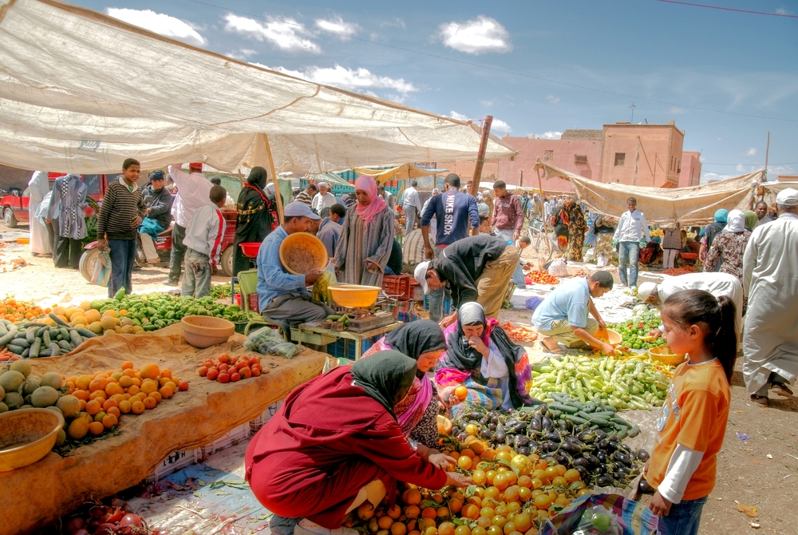The recent outbreak of the cyclospora infection in the luxury resort of Riviera Maya (Mexico), which is extremely popular with British tourists, is just another reminder that trying local food isn’t always a good idea. To make matters worse, people who became ill from this foodborne disease didn’t get it from eating food from street vendors or drinking water from the local wells. They got it from eating in luxury hotels where food is supposed to be safe. But apparently, it wasn’t. Fortunately, the tiny parasite Cyclospora cayetanensis that is responsible for the outbreak usually doesn’t pose any major threat to human health although the infection can be very unpleasant, not to mention that it can ruin your holidays.
How Serious Can It Be?
The cyclospora outbreak raises an important question. If you can get food poisoning in a luxury resort, is it even worth to bother and avoid this and that? Isn’t it better to simply enjoy the full experience of travelling, including the culinary one? Absolutely not!
The parasite causing cyclospora infection may not kill you but other pathogens (bacteria, viruses and parasites) that can be contracted through contaminated food or/and water can. According to the World Health Organization (WHO), as many as 420,000 people die from foodborne diseases every year, with many more developing serious health complications which are sometimes permanent. Last but not the least important, it’s not only germs that can harm you. Food poisoning can also be caused by chemical contamination which can cause potentially serious disease as well, including cancer. So by all means stay away from high-risk foods and beverages while exploring the world.
Avoiding Food Poisoning When Abroad
The risk of food poisoning is obviously the highest in the developing countries due to inadequate infrastructure, poor sanitation and problems with implementing the basic food safety standards including in handling, storage and preparation. This doesn’t mean you can’t get foodborne illness in the developed world but the risk is much higher in the developing parts of the world. As the above mentioned case of cyclospora infection in the Riviera Maya resort reveals, it’s not always possible to avoid food poisoning but you can dramatically reduce the risk by watching what you eat and drink.
You are highly recommended to avoid eating/drinking:
– raw and undercooked meat, fish, shellfish and eggs
– unpasteurised milk and milk products, including cheeses
– unrefrigerated ready meals
– food from the street
– fresh vegetables and fruits you can’t peel or wash
– tap and well water, unpasteurised juices and beverages containing ice cubes
Eat only hot, thoroughly cooked foods, fruits and vegetable you can wash or peel, and drink only canned and bottled beverages without ice cubes as they can be made from contaminated water. Also, trust your instinct. If it doesn’t look or smell right, don’t put it into your mouth. But if you can’t resist the temptation to try local food, order small portions. Even if contaminated, you are less likely to develop food poisoning symptoms, at least the severe ones.


